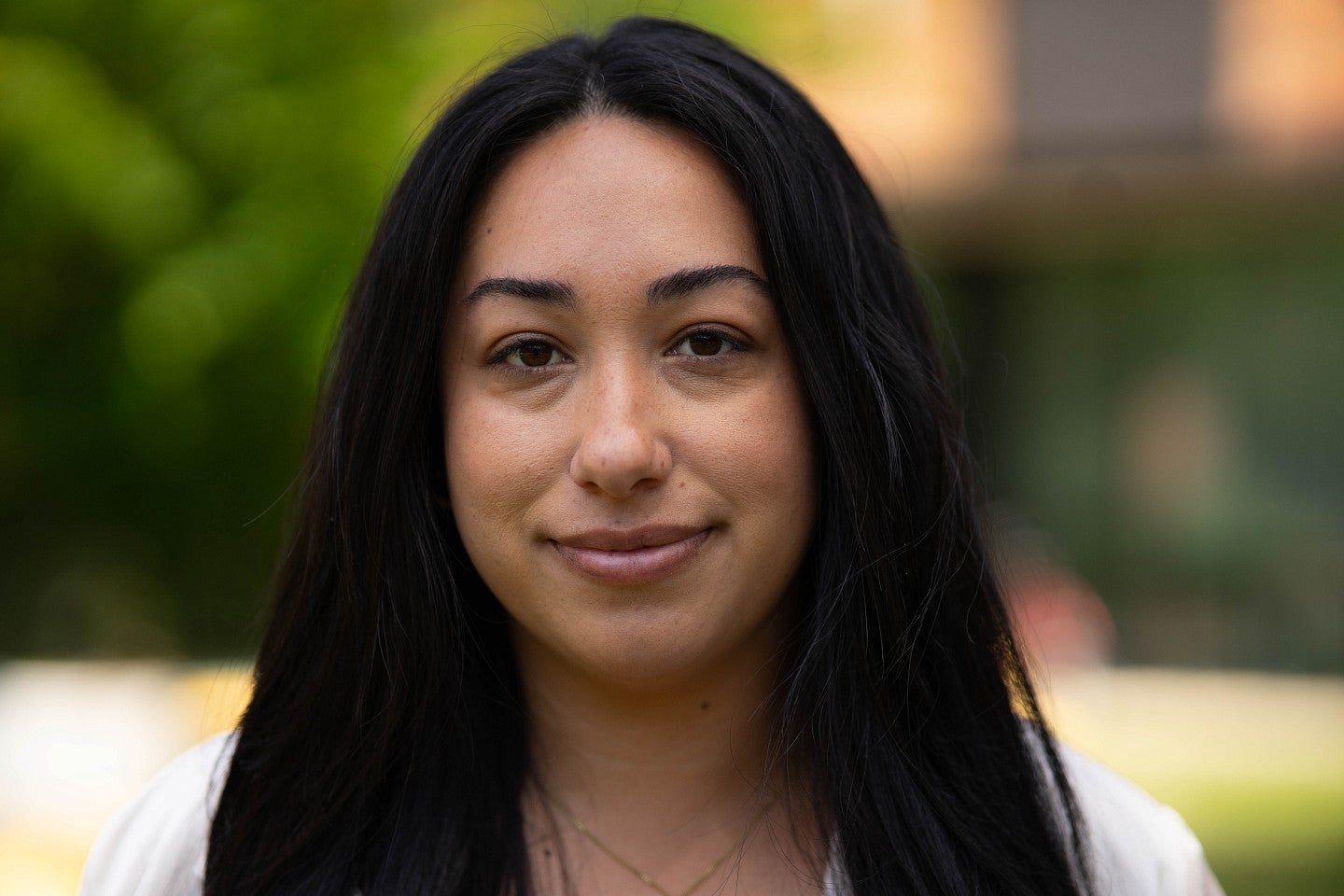
“I think it's really important for us
to be empathetic humans"
In the three years since Lana Lopesi “followed a hunch” that brought her across the ocean to the University of Oregon, she has helped bring Pacific Islander studies to the foreground in Eugene.
Born and raised in New Zealand, Lopesi saw herself reflected in those around her. She was surrounded by family and a community that shared her mixed ancestry. During her academic career, Pacific people taught her classes and made up the majority of her fellow students.
“The lineage is still very much alive, but also it's just a big population … you have your identity affirmed,” Lopesi said.
Now an assistant professor of Indigenous, Race, and Ethnic Studies and Native American and Indigenous Studies, Lopesi found a new community at the UO by sharing meals with students and connecting with the Native community. Coming from an eclectic background as an artist, author, and academic, she said she appreciates the intersection of feminism, ethnic, and indigenous studies her position allows.
“I think it's really important for us to be empathetic humans,” Lopesi said. “That requires understanding things like power and how that exists, that includes conversations around race and indignity, but also about gender and sexuality.”
Since joining the university, Lopesi has developed five courses within her department and helped put together the first IRES study abroad program to Sāmoa in partnership with political science professor Ronald Mitchell.
This spring she received the Ersted Award for Distinguished Teaching in recognition of her early career excellence. Lopesi said the award was affirming for her because teaching can feel like a private exercise between her and her students, invisible beyond the classroom.
When it comes to her Native American and Indigenous Feminism course, Lopesi said she approaches it “through a different door,” aiming to break down notions of mainstream feminism.
Part of developing classes is meeting the students' needs, according to Lopesi. She wants to fill the gaps with the classes she develops and allow all students to join a ten-week journey through a topic they may be entirely unfamiliar with.
“It's both a marathon and a sprint,” she said.
Lopesi’s students come in with varying degrees of knowledge about what indigenous, race and ethnic studies are. She incorporates student feedback through a journaling activity at the end of class that gives her students time to process information.
In addition to her teaching duties, Lopesi serves as the faculty advisor for the Pacific Islander Student Alliance and a faculty-in-residence in Justice Bean Hall. She’s a member of the Advisory Council for Native American and Indigenous Studies and will be the interim director of the program next year. She is also a mother of two.
“We often forget about the Pacific,” Lopesi said. “It's a third of our world. The United States has two territories in the Pacific. ‘Moana’ is the one of the highest-grossing Disney films to date. We have the legacy of Hawaiian quarterbacks here at the University of Oregon. I think Pacific studies can help us understand these things that we're casually encountering in more intentional ways.”
— By Grace Mangali
